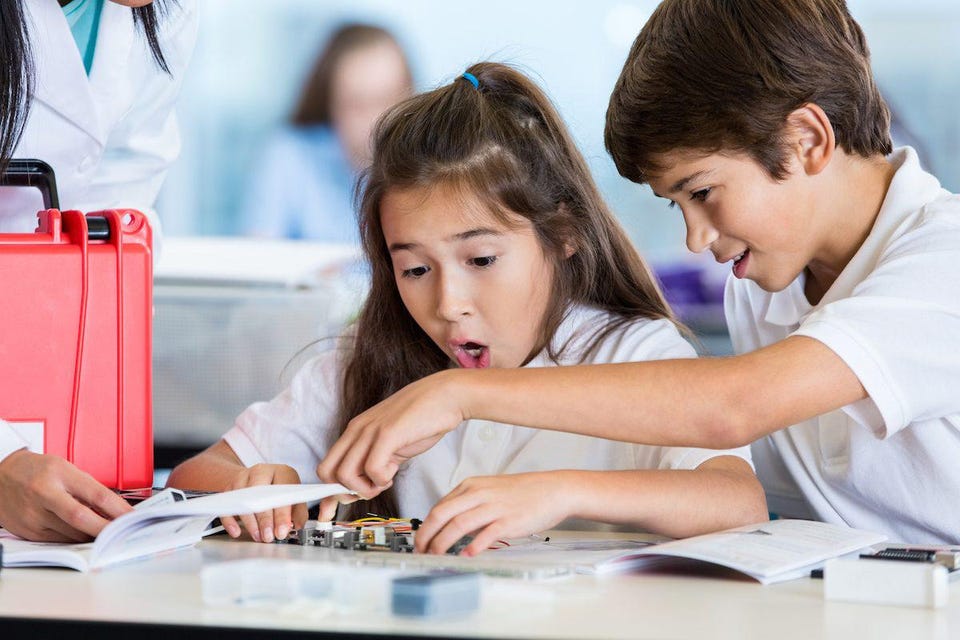Eight Tips to More Grateful Kids

Oh, those annoying first-world issues. Like when your teenager is upset because he can’t use his cell phone on the Thanksgiving road trip. Or when your toddler throws a fit when you refuse to buy him another toy in the store.
We are providing our children with more comforts than we did when we were growing up. Growing up is never easy, but how can we teach our children to appreciate what they have in an age of entitlement and materialism?
When we say, “You don’t realize how fortunate you are,” or “In my time, I didn’t enjoy the same things as you,” it sounds like pestering, and our children will feel that we don’t really understand their problems.
How can we teach our children to be grateful in a way that resonates with them?
There’s no time like the present to encourage our children to be grateful. Here are eight ways to help kids be more grateful.
1. Consider Family Contributions
You may be in the habit of doing most of your household chores yourself. It’s sometimes easier to do the tasks yourself.
We need to raise their contributions to the family if we feel that our children are not grateful enough for the work we do to run the household, buy them clothes, or maintain the car they use to get around the city.
Labeling family contributions as such is the first step. Doesn’t the word chores sound like a drag? When we refer to tasks as “family contributions,” it helps remind our children that these tasks are actually helpful for everyone. They contribute to their family.
It doesn’t mean that our children will stop complaining about the task at hand or suddenly enjoy it just because our language has changed. If family contributions are made a routine, children will be less likely to complain. The kids will also understand how often these tasks are needed, such as unloading the dishwasher and folding the clothes. They may even gain a new appreciation for their parents’ and caregivers’ daily work.
2. Schedule Acts of Service
We all have good intentions to bake cookies for the neighbors, stock the local food pantry, or collect donations for the underprivileged-especially around the holidays. Sadly, we tend to neglect these activities due to our busy daily schedules.
Make acts or services an important part of your family’s life. Invite everyone to a family gathering and brainstorm service ideas that are important to each individual. Schedule one or two service activities per month, all year.
Your 4-year-old child who loves cats may suggest that the family volunteer at an animal shelter. Your teen might mean that you entertain the seniors at your local senior center for Thanksgiving. You can even collect trash in the park together.
When we make time for these simple yet profound contributions, the benefits abound. They develop a greater sense of community and a connection to service. They will experience the joy of making a positive difference in another person’s life. They will feel closer to their family. They’ll also feel more gratitude for what they have.
3. You Can Make Do with Less
The good life is easy to adapt to for both kids and adults. It’s the ease of everything. Expecting that our favorite items will be included in the lunchbox or that the latest gadget will definitely be under the tree at Christmas.
This can lead to a sense of entitlement and a tendency to take things for granted.
Choose something that your family can do without once a month. You can go without pizza for a couple of weeks, you can go without TV for a bit, or you can go without air-conditioning for a week during July. We realize just how much we have when we “turn off” certain conveniences for a while.
4. Silver Linings
Next time you encounter a bad situation, try to find the positive side.
What if the movie you want to see has sold out? It’s no problem. You can go sledding instead.
Missed the bus with your kids? You can now sing along in your car to school.
Focusing on the silver linings means being grateful, even and especially when things aren’t going as planned.
If our kids don’t learn how to cope with the ups and downs of life, they will struggle more than they need to.
Even though you want to emphasize the positive, do not turn your lessons into sermons. If we don’t, our children will stop listening.
5. Making Gratitude A Ritual
Daily rituals can help us focus on the positive aspects of life. Everyone in the family should share three things that they are grateful for. A toddler may mention a tasty cookie he ate, or a tween might remember a new friend they met. Being positive is always a good thing.
As kids get older, they may prefer to keep a gratitude diary for daily reflection. It can be therapeutic for kids to write about their happy moments, especially before bed. This will help them sleep better.
You can get a large jar and have everyone write down their “gratitudes.” We can then read the notes aloud to each other on the weekend and have fun guessing who wrote them.
You don’t need to wait until Thanksgiving to start gratitude rituals. We can teach our children to be grateful all year round by focusing on what we already have rather than what we lack.
6. Don’t Give Superficial/Flowery Praise, Instead Encourage Effort
Praising our children seems to be a positive thing. Telling them they’re funny, smart, and intelligent is a good way to show our love.
It’s interesting to note that excessive praise does not make children grateful. They become less motivated, self-centered, and entitled.
Praise can make our children feel great for a brief period, like that Instagram post with 200 likes. But it does not last. It’s because credit does not encourage other important skills, such as hard work, perseverance, or an appreciation of what it takes to be successful in sports or school.
Some kids may be born with high intelligence and natural talent. They might also have a trust fund. This means they don’t need to work as hard in order to achieve their goals. Most kids and adults have to work hard for their desired outcomes.
Instead of saying, “You are amazing, I am so proud of your“, we can encourage our 10-year-old musical prodigy to realize that her hard work, and not her natural talent, is what made her recital a great success. She will be more appreciative of her achievements and less likely to take it for granted.
7. Remove Rewards
We should stop giving so many awards.
They are similar to praise. These rewards give children a quick hit of happiness but don’t create long-term motivation.
If we give a 5-year-old lollipop every time we go to the store, he won’t be grateful for the food that we buy for him. The lollipop will only motivate him to be helpful if he gets it.
We can still make the experience fun and useful. He can be taught to push the shopping cart carefully, find the right food in the aisles, and scan and pay at the checkout. Even if he is five, he will become more aware of the effort it takes to get food on the table. He will also grow more grateful. The best part? It didn’t require bribery.
8. Model Gratitude
Modeling the behavior that we want our children to emulate is one of the most effective parenting strategies. It means we need to be more grateful ourselves.
Do not miss the opportunity to thank the person who helped you at the store or restaurant. Don’t simply say thank you, but be specific. Your children are listening and watching.
We should also recognize our family members. You can thank your kids for hanging up the towels on their own without asking. And you can also express gratitude to your partner and children, even if they do “expected” tasks every day. Everyone wants to be appreciated.
They’ll see how much difference we can make when they see us give thanks to a family member or stranger. Then they’ll want to emulate us and enjoy the good feelings.
Final Thoughts
According to studies, the most grateful individuals are also the happiest. What is the ultimate goal of all parents for their children? Yes, to be satisfied.
Our children are facing an entitlement crisis. This is something that I am deeply concerned about, and it even led me to write my book Raising Capable, Grateful Children in an Overly-Entitled World.
Parents should not lose sight of the problem of entitlement. This is a problem that’s deeply rooted in our culture and easy to fall into. To fight it, you need knowledge, foresight, and diligence.
The strategies I have shared with you can make a huge difference to your children’s perspective. When times are tough, kids who have learned to focus on the things they are grateful for will not struggle as much.













